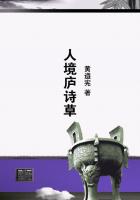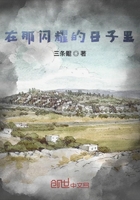(4) The construction of a legal system based on the principle of inalienability from the feudal line, in the interest of greatlanded families, and incompatible with either the continuance of the ancient, or the rise of a new class of peasantlandholders..
(5) The loss, with their territorial lands and rights, of all political power and independence on the part of the peasantry; and,by consequence, the establishment and maintenance by the great proprietors of laws most adverse to their interests.
(6) Lastly, the administration by the great landowners of their own estates in such a manner as to impoverish the peasantrystill further, and to sever their last remaining connection with the soil.
Several of these causes began to produce their effect in the middle ages. When the corvée was transformed into a rent paidin money, the lord of the manor began the war against small property. From the moment that he had no claim on theirservice, but only to so much an acre, it ceased to be to his advantage to have many vassals. It was, on the contrary, moreconvenient for him to deal with a single large lessee, than with several small tenants; and it was to his profit to reduce thenumber of persons entitled to exercise a right over the pasture land and the forest of the domain. He, therefore, strove byany means to unite several holdings into one large farm. As early as the fourteenth century, the archives of the Church of StPaul mention several examples of this grouping of several holdings into one. (11) Harrison, in his Description of England atthe beginning of the Holinshed Chronicles , shews how "our great encroachers" transformed numberless small holdings intovast sheep walks.
The considerable rise in the price of wool, in the fifteenth century, determined the lords of the manor to let nothing preventtheir extending the grass lands at the expense of the arable. They had recourse to clearances, such as have been carried outmore recently in Ireland. They attained their object in this way. The demesne land, as we have seen, consisted of numerousparcels intermixed with those of the tenants, and subject, like theirs, to the compulsory rotation. When they effected a newpartition, so as to transform their domain into a large farm under a single tenant, they united to it a portion of the tenants'
lands, and so disorganized the whole of the old agrarian constitution. By appropriating vast extents of the common land,they ruined, or at least made more difficult, cultivation by small proprietors, who were impoverished by having less wood,and less pasture for their cattle. If a famine, or a bad harvest occurred, there was nothing for them to do but surrender theirproperty to the lord, who united it to his own domain. The numerous prosecutions, instituted against those who had throwndown enclosures, shew to what an extent the peasants suffered. In the end of the fifteenth, and throughout the sixteenthcentury, the destruction of small holdings and the conversion of arable into grass lands aroused the most violent opposition.
A law of Henry VII., in 1488, prohibits the destruction of farm buildings which are let with, twenty acres of land. "Manyhouses and villages," says the preamble of this law, "are now deserted. The arable land which belonged to them has beenenclosed, and turned into grass land; and idleness is becoming general. Where two hundred people were living but lately bytheir labour, two or three shepherds are now to be seen." Bacon commends this law because its object was "to keep theplough in the hands of the owners and not hirelings." Four similar laws were passed under Henry VIII, which is evidencehow powerless they were. One orders the re-building of the houses that had been demolished, and the return to the ploughof the lands which had been taken from it. Another commands the building of houses for every cultivated area from thirty tofifty acres in extent. The law of 1634 is intended to stop the overrunning of sheep. "A few individuals have accumulated intheir own hands enormous extents of land, on which they feed countless flocks. Some among them possess from ten totwenty-four thousand sheep. Consequently, cultivation is abandoned, and the country depopulated." (12)Bishop Latimer, in his famous sermon On the Plough , preached before the court of Edward VI (1549), reproaches thenobles for being inclosers , graziers , and rent-raisers , transforming the yeomanry into disinherited slaves; the shepherd withhis dog, he exclaimed, has taken the place of the vanished inhabitants. Bernard Gilpin accuses the gentlemen of want ofgentleness: "Driving the unfortunate from their homes is no crime in their eyes." In 1551, the bishop of Rochester presents apetition to the king, in which he complains that two acres out of three are taken from cultivation, and that the ruralpopulation will soon resemble "the serfs of France more than the old, prosperous yeomanry of England." (13)After the death of Henry VIII., the protector Somerset instituted an extraordinary commission to examine the situation, andto seek a remedy. The most active member of this commission, John Hales, drew up a report, in which the condition of therural districts is depicted in the most gloomy colours. "We can see nothing but houses in ruins and cultivators withouthomes; sheep and oxen have taken their place. The king can no longer find soldiers, and has to employ foreign mercenaries."This commission, which aroused so many hopes, had no result. The nobles were too powerful: witnesses were afraid to giveevidence against them. The country people durst not appear, or were not summoned. Bills were submitted to Parliament,ordaining the division of the large farms, and limiting the amount which the proprietor might cultivate himself: but they werenot passed.















